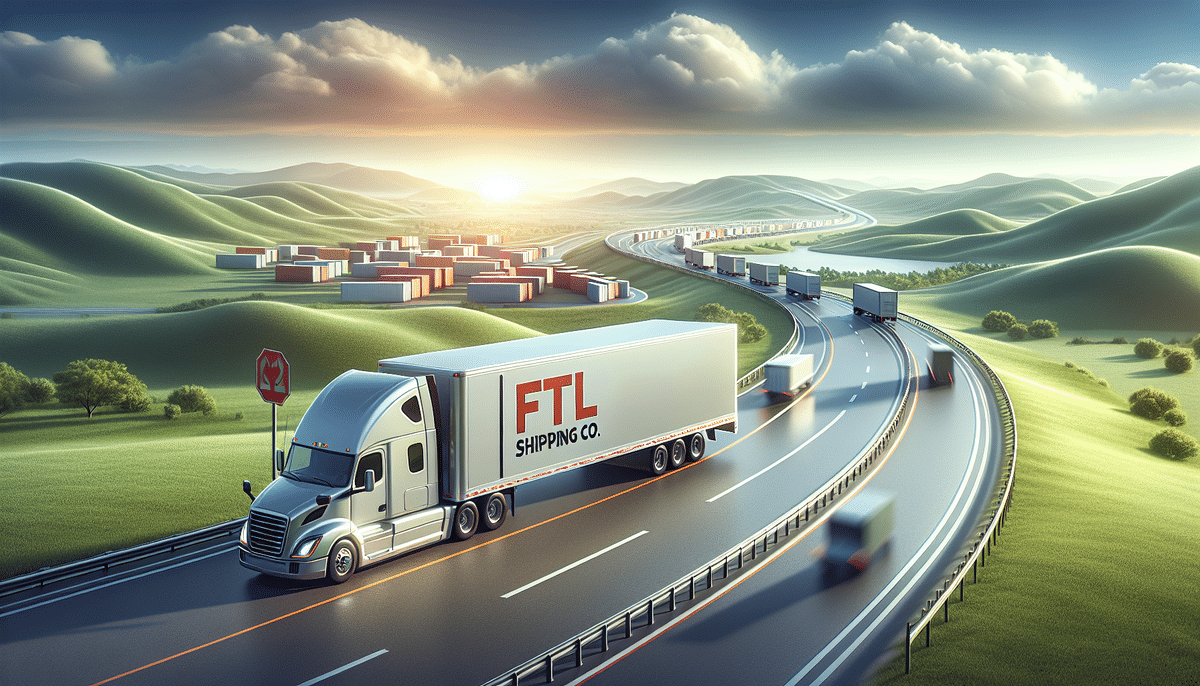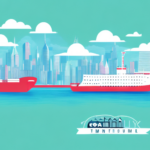Understanding the Benefits of FTL (Full Truckload) Shipping
In the competitive world of logistics and transportation, selecting the right shipping method is crucial for business success. Full Truckload (FTL) shipping is often an overlooked option that can offer numerous advantages over other shipping methods. This article delves into the benefits of FTL shipping, highlighting how it can enhance efficiency, reduce costs, and contribute to the overall success of your business.
How FTL Shipping Can Save Your Business Time and Money
FTL shipping provides significant cost savings compared to Less Than Truckload (LTL) shipping. By bearing the full cost of the truck, shippers have exclusive use of its entire carrying capacity, leading to lower per-unit costs. This exclusivity often results in fewer stops, reducing transit times and minimizing the likelihood of delays or damages.
According to industry reports, FTL shipping can reduce transportation costs by up to 20% compared to LTL shipments, especially for large or high-volume orders (ShipScience Industry Report).
Additionally, FTL shipments require less handling and paperwork, decreasing the potential for errors and administrative delays. This streamlined process not only saves time but also enhances overall operational efficiency.
The Advantages of Shipping Full Truckloads for Large-Scale Operations
For large-scale operations, FTL shipping offers unparalleled benefits. The ability to ship large quantities at once simplifies logistics management and provides better control over the supply chain. Businesses can track their shipments more effectively, ensuring timely deliveries and reducing the risk of lost or misplaced goods.
FTL is particularly advantageous for industries that require specialized transportation equipment. For instance, companies shipping perishable goods can utilize refrigerated trucks to maintain product quality, while those transporting oversized items can opt for flatbed trucks tailored to their specific needs.
Moreover, FTL shipping often results in faster transit times, as the entire truck is dedicated to a single shipment without interim stops. This direct routing is essential for businesses that operate under tight deadlines or require swift replenishment of inventory.
A Comprehensive Guide to FTL Shipping: What You Need to Know
When considering FTL shipping, it's essential to understand the key factors involved:
- Cost: While FTL can be more expensive upfront, the cost-effectiveness increases with larger shipments.
- Capacity: Ensure you have enough goods to utilize the full capacity of the truck.
- Equipment: Specialized goods may require specific truck types, impacting logistics and costs.
- Transit Time: FTL can offer faster delivery, but requires careful scheduling and coordination.
Security is another critical consideration. FTL shipments are ideal for high-value or sensitive items, as they reduce the number of handling points and potential exposure to theft or damage. Selecting a carrier with robust security protocols ensures the safety of your goods.
Environmentally, FTL shipping can reduce carbon emissions by minimizing the number of trucks on the road. Some carriers further enhance sustainability by using hybrid or electric trucks, aligning with green business practices.
The Top Reasons Why FTL Shipping is More Cost-Effective Than LTL (Less Than Truckload) Shipping
FTL shipping stands out as a cost-effective option for several reasons:
- Exclusive Use: Paying for an entire truck allows for economies of scale, reducing the cost per unit.
- Reduced Handling: Fewer handling points decrease the risk of damage and administrative costs.
- Direct Routing: Eliminates the need for stops and transfers, saving time and fuel costs.
- Carrier Priority: FTL shipments often receive priority treatment, ensuring timely deliveries.
How FTL Shipping Can Help You Meet Tight Deadlines and Improve Customer Satisfaction
In today’s fast-paced business environment, meeting tight deadlines is paramount. FTL shipping ensures faster transit times and reliable delivery schedules, which are critical for maintaining customer satisfaction.
By having greater control over the shipping process, businesses can guarantee timely arrivals, essential for just-in-time inventory systems and seasonal products. Reliable delivery enhances customer trust and can lead to repeat business and positive reviews.
Furthermore, FTL shipping allows for better forecasting and inventory management, enabling businesses to respond swiftly to market demands and reduce lead times.
The Positive Impact of FTL Shipping on the Environment and Sustainability
FTL shipping contributes to environmental sustainability by optimizing transportation efficiency. Fewer trucks on the road mean reduced carbon emissions and lower fuel consumption. Consolidating shipments into full truckloads maximizes the use of each vehicle, minimizing the environmental footprint.
Carriers embracing eco-friendly practices, such as utilizing electric or hybrid trucks, further enhance the sustainability benefits of FTL shipping. Businesses committed to green initiatives can leverage FTL shipping to align their logistics operations with environmental goals.
A Comparison Between FTL and Other Freight Shipping Options: Which One is Right for Your Business?
Choosing the right shipping method depends on various factors:
- Size and Quantity: FTL is ideal for large shipments, while LTL suits smaller loads.
- Distance: FTL is often more efficient for long-haul routes, whereas LTL might be cost-effective for shorter distances.
- Delivery Timeframe: FTL offers faster and more predictable delivery times.
- Goods Type: Perishable or high-value items benefit from the exclusive handling of FTL.
- Business Requirements: Unique shipping needs or specific scheduling preferences may necessitate FTL.
By evaluating these factors, businesses can determine whether FTL or alternative shipping methods like intermodal or air freight best meet their logistical needs.
Tips for Choosing the Right Carrier for Your FTL Shipments
Selecting the appropriate carrier is crucial for the success of FTL shipments. Consider the following when choosing a carrier:
- Experience: Opt for carriers with a proven track record in FTL shipping.
- Safety Record: A strong safety history ensures the integrity of your shipment.
- Capacity and Equipment: Ensure the carrier has the necessary trucks and equipment for your specific needs.
- Flexibility: Carriers that offer flexible scheduling and routing options can better accommodate your business requirements.
- Competitive Pricing: Compare rates to find a carrier that offers value without compromising quality.
Additionally, reviewing customer testimonials and seeking recommendations can provide insights into a carrier’s reliability and service quality.
Expert Insights on How to Streamline Your FTL Shipping Operations for Maximum Efficiency
To maximize the efficiency of FTL shipping operations, consider the following expert recommendations:
- Invest in Transport Management Software: Advanced software solutions improve visibility, coordination, and route optimization.
- Collaborate with Carriers: Building strong relationships with carriers can lead to optimized routes and better service terms.
- Utilize Data Analytics: Analyzing shipping data identifies inefficiencies and highlights opportunities for process improvements.
- Maintain Strong Supply Chain Relationships: Effective communication and collaboration with all stakeholders enhance overall logistics performance.
Implementing these strategies can lead to streamlined operations, reduced costs, and improved delivery performance.
Common Challenges and Solutions in FTL Shipping: How to Overcome Them
Despite its benefits, FTL shipping presents certain challenges:
- Capacity Constraints: Ensuring a full truckload can be difficult for smaller shipments.
- Higher Upfront Costs: FTL may seem more expensive initially, potentially deterring some businesses.
- Extended Lead Times: Scheduling and arranging FTL shipments may require more planning.
- Specialized Equipment Needs: Specific goods may necessitate particular truck types, complicating logistics.
To address these challenges, businesses can:
- Collaborate with Carriers: Work closely with carriers to optimize load utilization and negotiate better rates.
- Leverage Technology: Use transport management systems to enhance visibility and efficiency.
- Explore Hybrid Shipping Solutions: Combine FTL with other shipping methods to balance cost and flexibility.
- Plan Ahead: Advanced planning and scheduling can mitigate lead time issues.
The Future of FTL Shipping: Trends and Predictions for the Industry
The FTL shipping industry is evolving rapidly, influenced by several key trends:
- Growth in E-Commerce: The surge in online sales is increasing demand for efficient FTL shipping solutions.
- Technological Advancements: Innovations like autonomous trucks and advanced data analytics are optimizing shipping operations.
- Sustainability Focus: The push for greener logistics is driving the adoption of eco-friendly trucks and practices.
- Increased Automation: Automation in warehouses and transportation is enhancing efficiency and reducing costs.
Staying abreast of these trends will enable businesses to adapt their logistics strategies and maintain a competitive edge in the market.
Case Studies: Businesses That Have Successfully Implemented FTL Shipping Strategies
Real-world examples highlight the effectiveness of FTL shipping:
- Manufacturing: A manufacturing company reduced transportation costs by 30% and streamlined logistics by switching to FTL shipping.
- Retail: A retail business improved delivery times and increased customer satisfaction by leveraging FTL shipping for bulk orders.
- Agriculture: An agricultural firm enhanced the freshness and quality of their produce by utilizing refrigerated FTL shipments.
These case studies demonstrate how diverse industries can harness FTL shipping to enhance efficiency, reduce costs, and improve overall performance.
In summary, Full Truckload (FTL) shipping offers a multitude of benefits, including cost savings, faster transit times, and greater control over the shipping process. By understanding the key factors and effectively addressing potential challenges, businesses can leverage FTL shipping to optimize their logistics operations and drive success.






















